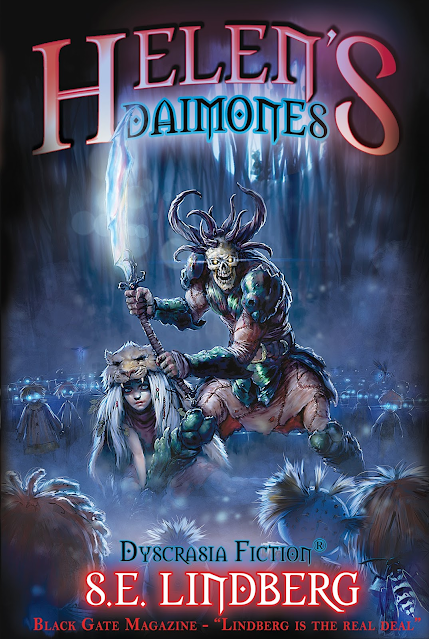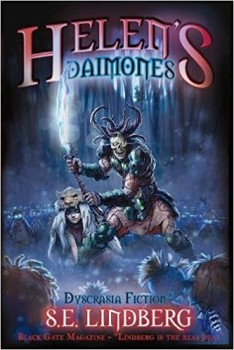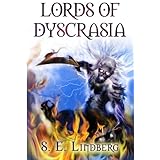LORDS OF DYSCRASIA is a starkly original fantasy epic steeped in horror and weirdness.
The thing I love most about the fantasy genre is its limitless potential. The thing I hate most about the fantasy genre is how little this potential is actually used. Let’s face it, most fantasy authors are simply copyists, slavishly aping either Howard, Tolkein, or more recently Martin. Most fantasy worlds are generic and uninspired, and seem merely to have been cobbled together from the refuse of someone’s high school D&D campaign. Sorting through this dross in search of something truly original often feels exhausting, depressing, even infuriating. Nonetheless, the search pays off when you find something like LORDS OF DYSCRASIA.
LORDS OF DYSCRASIA is truly unique and deeply, deeply weird. Reading it means being immersed in a different reality, one with all the exquisite newness and strange deja vu you might find in a dream. The narrator does little to handhold you through the weirdness either, and parts of the story are beautifully elliptical. The imagery is baroque, eldritch, and horrifying. Here we find the magic wombs of divine and undying insectoid matriarchs used as forges infernal; sentient fogs from which mutilated bodies dangle like gems on a crystal chandelier; crowds of worshippers whose pierced bodies are linked by bloody strands of musically vibrating thread. The rich imagery is everywhere present, as is an atmosphere of deep and uncompromising horror. There is a coldness to the tale, a menacing inhumanity that denies the reader even the most fleeting sense of comfort in its depths. To add to this effect, many of the protagonists are inhuman, and even the mortal ones move through strange states of undeath and deific possession. Nevertheless, their motives are always deeply human, even archetypal – the need for knowledge, the desire for revenge, the urge to be united with a loved one. These classic motives make even the weirdest characters relatable, and link them into an intricate tale of mythical dimensions, filled with treachery, irony, and ominous coincidence. Dread gods manipulate mortal fates, creating a family saga to rival that of the Volsungs or the Atreidae.
If I have any criticisms of LORDS OF DYSCRASIA, it is that the narrative can be so esoteric, so weird, so relentlessly rich in its otherworldly visuals, that it can at times feel alienating. Then again, this is perhaps part of the book’s unique charm and personality. One more definite criticism: there are too many adverbs for my liking, though that is of course a matter of style. Overall I loved the book, and I can even see myself reading it again so I can pour over all the rich descriptions of weird monsters and undead abominations. The visual nature of LORDS OF DYSCRASIA would make it an excellent candidate for adaptation into a graphic medium, especially a comic or video game.
I’m looking forward to reading the next book in this series and I urge anyone who likes truly weird and innovative fantasy to give it a try.
B.J. Swann writes punk as fuck fiction with elements of fantasy, extreme horror, erotica, and anything else he wants to throw in there. The Aeon of Chaos is his fictional setting, a hyperreality of fairytale madness where anything can happen.


















 )
)